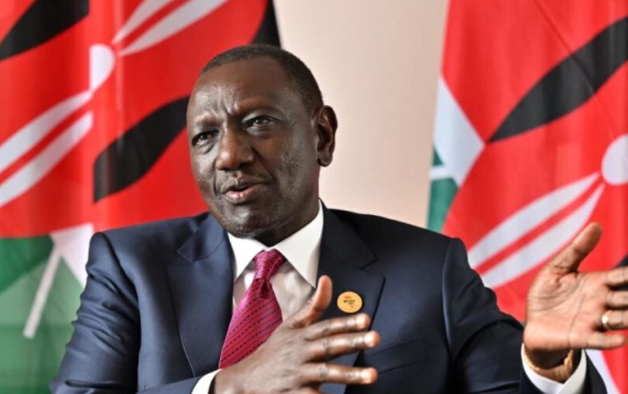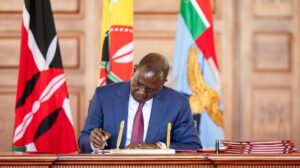Just a day after President William Ruto dismissed his entire Cabinet following weeks of protests by Kenyans, he faces another significant hurdle.
The High Court has ruled that the Social Health Insurance Act (SHIF), a key component of his campaign promises, is unconstitutional.
This decision comes at a critical juncture for President Ruto, who is striving to regain the trust of a disappointed electorate.
The SHIF was intended to replace the National Insurance Health Fund (NHIF) as part of Ruto’s broader plan to overhaul the health insurance landscape in Kenya.
His administration has touted SHIF as a more efficient and inclusive system that would ensure better health coverage for all Kenyans.
However, the High Court’s ruling has thrown these plans into disarray, mandating Parliament to rectify the law within 120 days, with a deadline set for November 20th.
The court’s decision underscores significant legal and procedural flaws in the SHIF, raising questions about the thoroughness and robustness of the legislative process under Ruto’s administration.
This ruling not only stalls a major policy initiative but also compounds the challenges facing the President, who is already under pressure to address the grievances that led to widespread protests.
President Ruto’s administration has been marked by ambitious reforms, but the backlash from the public has been swift and intense.
The protests that culminated in the dismissal of the Cabinet were driven by dissatisfaction with the government’s handling of various issues, including economic hardships and perceived inefficiencies in governance.
The ruling on the SHIF adds to the perception that Ruto’s administration is struggling to deliver on its promises.
The health insurance issue has been a perennial challenge for successive Kenyan governments.
The NHIF, despite its long-standing presence, has faced criticism for being inefficient and unable to meet the healthcare needs of all Kenyans. Ruto’s push for SHIF was seen as a bold move to address these shortcomings.
However, the constitutional setback suggests that the path to reforming health insurance is fraught with legal and practical obstacles.
The court’s directive to Parliament to correct the law by November 20th places additional pressure on the legislative body and the President.
The next few months will be crucial as lawmakers work to address the court’s concerns and devise a viable framework for health insurance that can withstand legal scrutiny.
President Ruto will need to navigate this period carefully, balancing the need for swift legislative action with the necessity of maintaining public trust and confidence.
His ability to manage this crisis will be a significant test of his leadership and political acumen.
The outcome will likely influence public opinion and shape the trajectory of his presidency.
The High Court’s ruling against the SHIF is a major setback for President William Ruto, coming at a time when his administration is already under intense scrutiny.
The challenge now is to rectify the legal issues within the stipulated timeframe and deliver a robust health insurance system that meets the needs of all Kenyans.
How effectively President Ruto and his administration handle this situation will have lasting implications for his tenure and the broader health sector reforms in Kenya.





















Add Comment